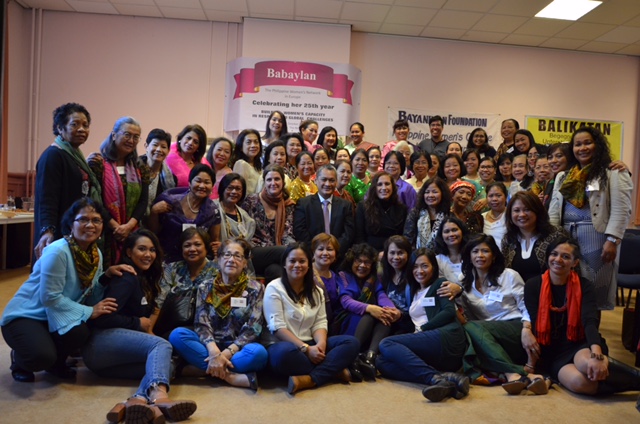
Last October, the Philippine women’s network Babaylan Europe celebrated its 25th year, with the theme: “Building Women’s Capacity in Response to Global Challenges.”
Founded in Barcelona, Spain in 1992, Babaylan derived its name from the women who acted as priests and who struggled and advocated for an egalitarian society during the 16th century.
It is this struggle, this historical tradition that Babaylan Europe is anchored on. The network currently has affiliates in 10 European countries.
Mary Lou U. Hardillo-Werning is the former chairperson of Babaylan Europe and is presently, the chairperson of Babaylan Germany.
She said the network provides a forum for Filipino migrants to exchange ideas in Europe, lobby for their interests, and educate themselves on issues such as feminism, gender and discrimination.

Hardillo-Werning said that most Filipinas in Europe experience racism and discrimination and are employed in low-paying “reproductive work,” receive low salaries, experience sexual molestation, de-skilling, and intellectual stagnation.
“Most Filipinas married to European nationals are forced to be legally and financially dependent on their husbands because their education is not recognized, their employment possibilities are in low-paying jobs, they have language difficulty, and their contribution as housewives is not recognized in the society,” she said.

Hardillo-Werning added that there are Filipinas who are victims of human trafficking, harassed, and exploited by pimps, bar owners, recruiters, and traffickers. These women, and not the traffickers, are the ones usually punished by lawmakers in Europe.
Babaylan believes that Filipinas have to link together to be able to have more power in fighting for their rights.
“There is a need to lobby policy-making bodies to repeal racist and sexist European laws, and to have migrants represented in European policy-making bodies which formulate policies that affect them,” Babaylan Europe said in a statement.—Psyche Roxas-Mendoza




